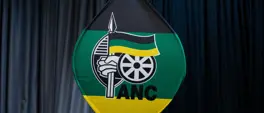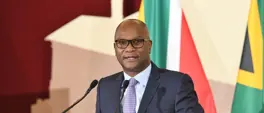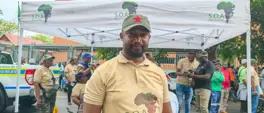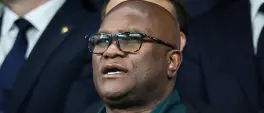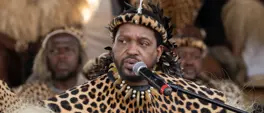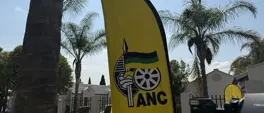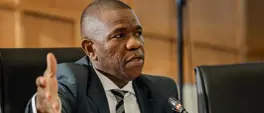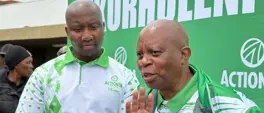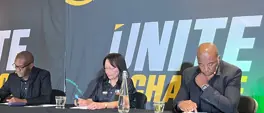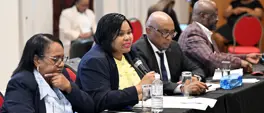POLITRICKING | Dr Brigalia Bam reflects on how 30 years have proven too short a time to achieve true transformation
Tshidi Madia
6 August 2025 | 8:13Dr Bam, this season’s last guest on EWN’s Politricking with Tshidi Madia, is adamant that the South African experience has veered off course, with her even calling for changes to the very electoral system she oversaw in the country’s formative years.
- Politricking with Tshidi Madia
- Dr Brigalia Bam
- African National Congress (ANC)
- National Dialogue (1)
- national dialogue
- Government of national unity (GNU)
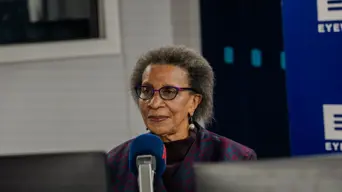
Dr Brigalia Bam. Photo: Sphamandla Dlamini
"With age comes wisdom," is a popular adage, one that comes to mind frequently when in conversation with Dr Brigalia Bam, the first African woman to serve as an electoral commissioner.
Hers is a story interwoven with that of South Africa’s 31 years of freedom, with her toil having literally shaped how the country engages with the democratic process. However, Bam, now in her 90s, seems to take a dim view of how that freedom has played out over the years. For her, there is a need to accept that mishaps took place when putting in the foundational blocks of building the so-called beloved "rainbow nation".
Dr Bam, this season’s last guest on EWN’s Politricking with Tshidi Madia, is adamant that the South African experience has veered off course, with her even calling for changes to the very electoral system she oversaw in the country’s formative years.
"We never realised that 30 years will be too short for us to acquire the real democracy and better life for all. We had never run a government and never had an experience of managing the change," she frankly admitted.
For the changemaker, much has gone wrong, leading to South Africa’s downward trajectory, which she believes can only be undone by the citizens and not politicians in the country.
"This is not an excuse," she says, almost as a preamble, before explaining where she believes the country has gone wrong, which for her, includes the electoral system that she oversaw since the country’s founding father, Nelson Mandela, appointed her one of its first set of commissioners.
Bam served as vice-commissioner before taking over the reins during the Mbeki era.
"There are things we didn’t know about, we had no experience of… To me, that’s why I feel strongly that our electoral system, which we had copied from what I call old democracies, that’s why we are in this difficulty," she said.
The former commissioner questioned a system that sees politicians not being held accountable by the citizens they claim to represent, instead, their political parties, who often rehabilitate those who’ve been found wanting while on duty.
"If the party likes you, you’ve been a good member, or maybe you sing well or whatever you do… those are the changes we must make, don’t blame us for having done it that way, we copied others, but we didn’t know that this system will not suit our particular context," she said.
Bam said this had resulted in even more impoverished South Africans than in the past.
The former teacher and social worker is one of President Cyril Ramaphosa’s Eminent Persons Group (EPG) tasked with helping to champion a much-contested national dialogue set to kick off this month.
Her belief in the idea, which was first brought to the fore by former President Thabo Mbeki, is resolute.
The National Dialogue has been a prickly subject with the national coalition government, with the second-largest partner, the DA, refusing to participate in it, despite it having been adopted as one of the 7th administration’s projects. An uproar also followed an announcement of a R700 million price tag being associated with the mission, which will be spearheaded by foundations linked to former liberation heroes and that of F W De Klerk, the last apartheid president.
Bam defended the dialogue, insisting that nothing like it had happened in the country, saying it presented an opportunity for South Africans to discuss the state of their reality and to plot a way beyond the now.
"I have been part of the group on many things we were trying to do in the early days. This is going to be the first time that South Africans, not Parliament, not ANC, not church, all organisations I have been a part of, ordinary South Africans, for the first time, will be in a room. You're not going to tell us you were sent by a party, to say they want water in my village, this for me, is the exciting part," she said.
"It might be an imperfect structure, but it will be for the first time," she adds.
Bam also noted that the dialogue was finding the country at its worst, this as she takes note of the cynics, arguing that she believes there will be enough people who, instead of keeping a dim outlook, will opt to get involved in attempts to change the status quo.
As for her generation, she said she hopes the dialogue will be a moment of reckoning.
"We lost out in the change of anything called value because of deprivation. We became very greedy because we suddenly discovered what we were missing, and we were losing many things without us being conscious that we were losing them," she said.
"We found that capitalism, wealth, money, because we are human, caught us at our worst, and so those are the things we need to talk about," she continued.
Get the whole picture 💡
Take a look at the topic timeline for all related articles.
